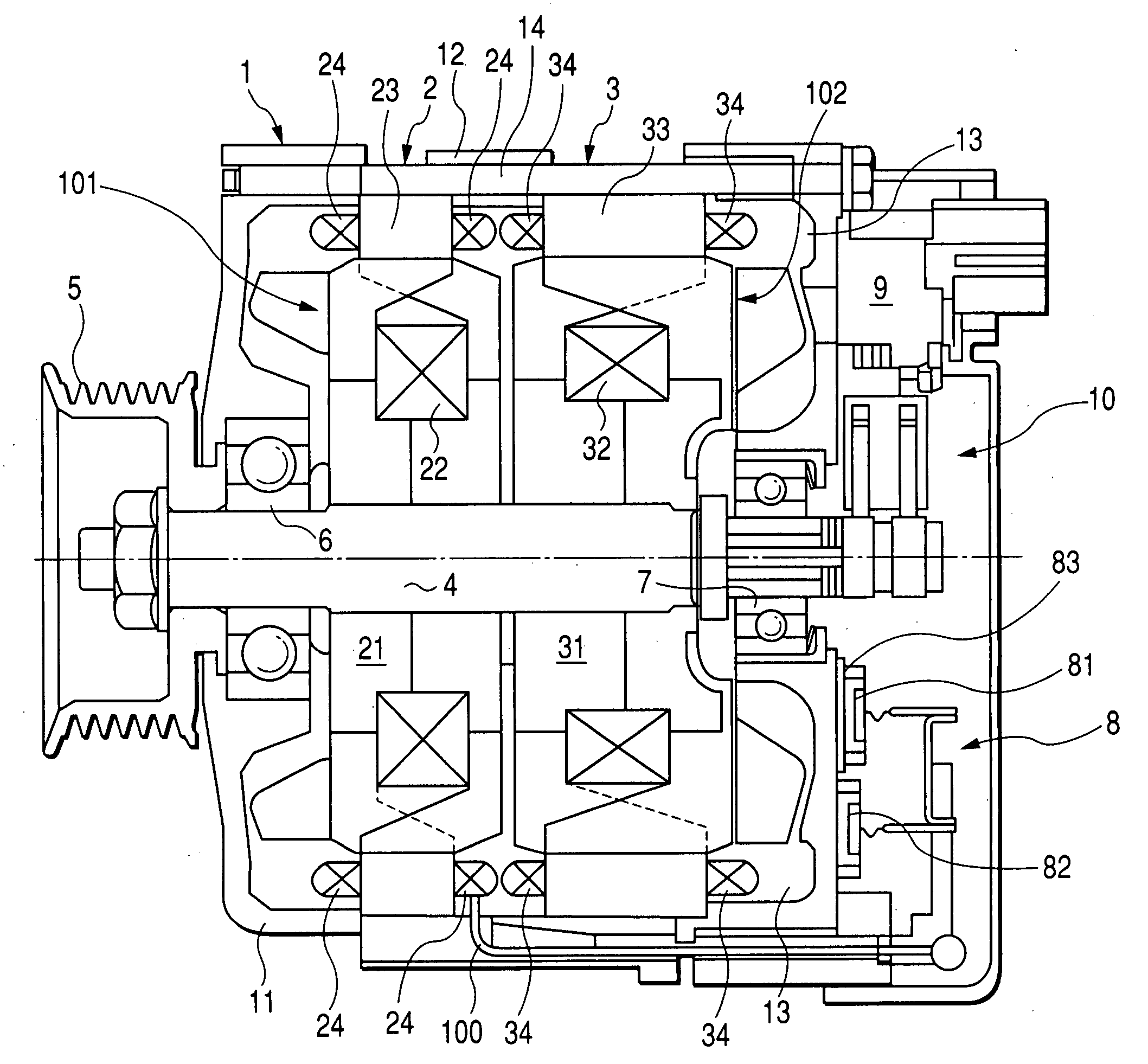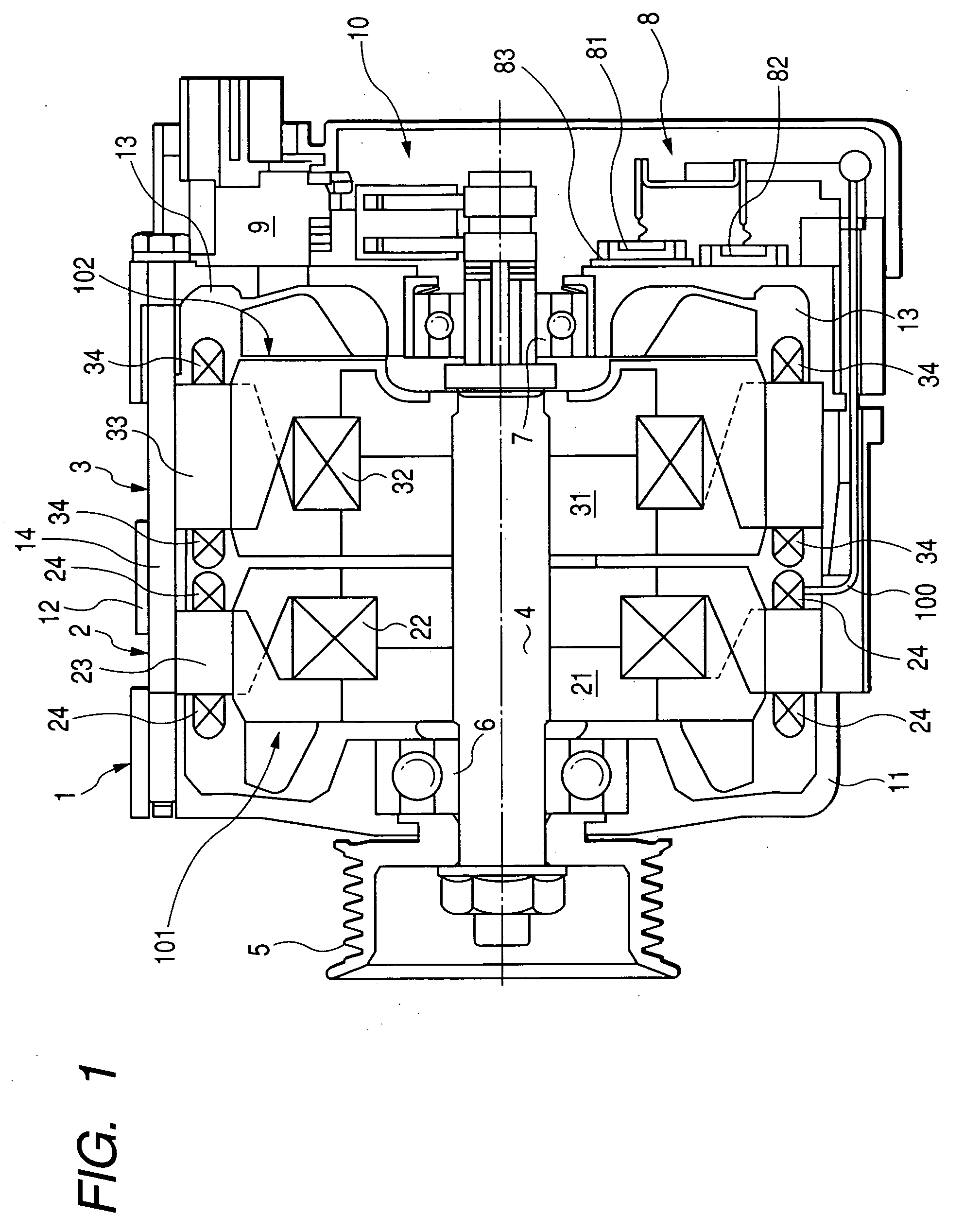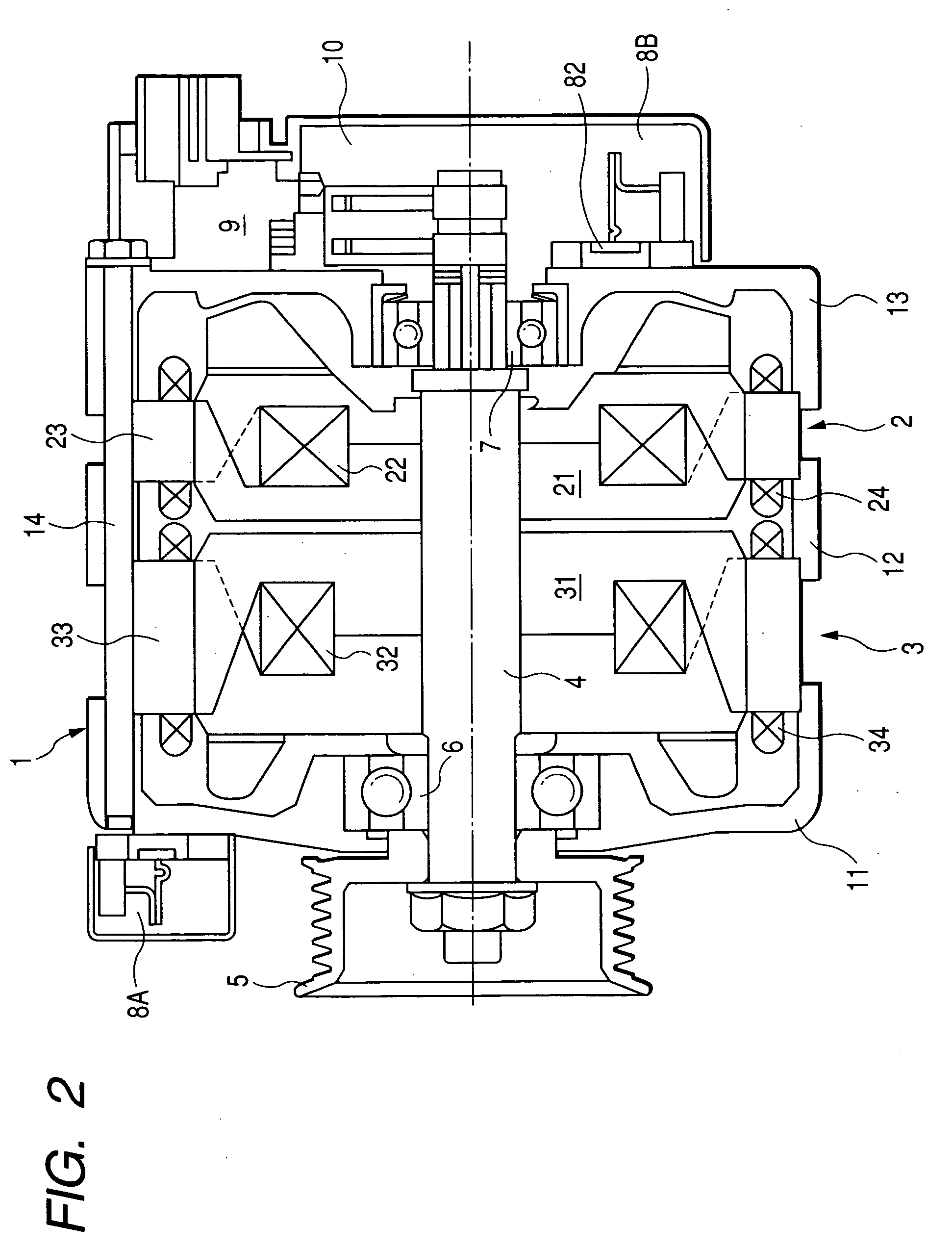Tandem rotary electric machine
- Summary
- Abstract
- Description
- Claims
- Application Information
AI Technical Summary
Benefits of technology
Problems solved by technology
Method used
Image
Examples
first embodiment
[0034] The entire configuration of a tandem electric rotary machine for vehicle (or a vehicle alternator), having a dual stator-rotor pair configuration, according to the first embodiment of the present invention will now be described with reference to FIG. 1.
[0035]FIG. 1 is a sectional view in a rotor shaft direction of the tandem electric rotary machine having a primary rotary electric machine and a secondary rotary electric machine arranged in tandem configuration according to the first embodiment.
Entire Configuration of the Tandem Electric Rotary Machine of the First Embodiment
[0036] In FIG. 1, a housing 1 comprises a front housing 11, a center housing 12, and a rear housing 13. Those housing components 11, 12, 13 of the housing 1 are fixed tightly together by a through bolt 14. A rotor shaft 4 is supported to the housing 1 through bearings 6 and 7. A pulley 5 is fixed to the front end part of the rotor shaft 4 that protrudes from the front end surface of the housing 1. A rec...
second embodiment
[0050] The entire configuration of a tandem electric rotary machine for vehicle (or the vehicle alternator) according to the second embodiment of the present invention will now be described with reference to FIG. 2. FIG. 2 is a sectional view in a rotor shaft direction of the tandem electric rotary machine of the second embodiment.
[0051] The tandem electric rotary machine for vehicle according to the second embodiment is basically same in configuration of the tandem electric rotary machine for vehicle of the first embodiment. Accordingly, a difference configuration and operation between the first embodiment and the second embodiment will be explained.
[0052] In FIG. 2, reference character 8A designates a rectifier device for the secondary rotary electric machine (or the secondary stator-rotor pair) 3, which is capable of rectifying output current from the secondary rotary electric machine 3. The rectifier device 8A for the secondary rotary electric machine 3 is mounted on the front...
third embodiment
[0055] The entire configuration of a tandem rotary electric machine for vehicle (or the vehicle alternator) according to the third embodiment of the present invention will now be described with reference to FIG. 3. FIG. 3 is a sectional view in a rotor shaft direction of the tandem rotary electric machine of the third embodiment.
[0056] The tandem rotary electric machine for vehicle according to the third embodiment is basically same in configuration of the tandem rotary electric machine for vehicle of the first embodiment and the second embodiment. Accordingly, one of the differenced in configuration between the third embodiment and the first and second embodiments will be explained.
[0057] The randel type rotor core 21 of the primary rotary electric machine (or the primary stator-rotor pair) 2 comprises a pair of half cores 201 and 202. The randel type rotor core 31 of the secondary rotary electric machine (or the secondary stator-rotor pair) 3 comprises a pair of the half cores 2...
PUM
 Login to View More
Login to View More Abstract
Description
Claims
Application Information
 Login to View More
Login to View More - R&D
- Intellectual Property
- Life Sciences
- Materials
- Tech Scout
- Unparalleled Data Quality
- Higher Quality Content
- 60% Fewer Hallucinations
Browse by: Latest US Patents, China's latest patents, Technical Efficacy Thesaurus, Application Domain, Technology Topic, Popular Technical Reports.
© 2025 PatSnap. All rights reserved.Legal|Privacy policy|Modern Slavery Act Transparency Statement|Sitemap|About US| Contact US: help@patsnap.com



